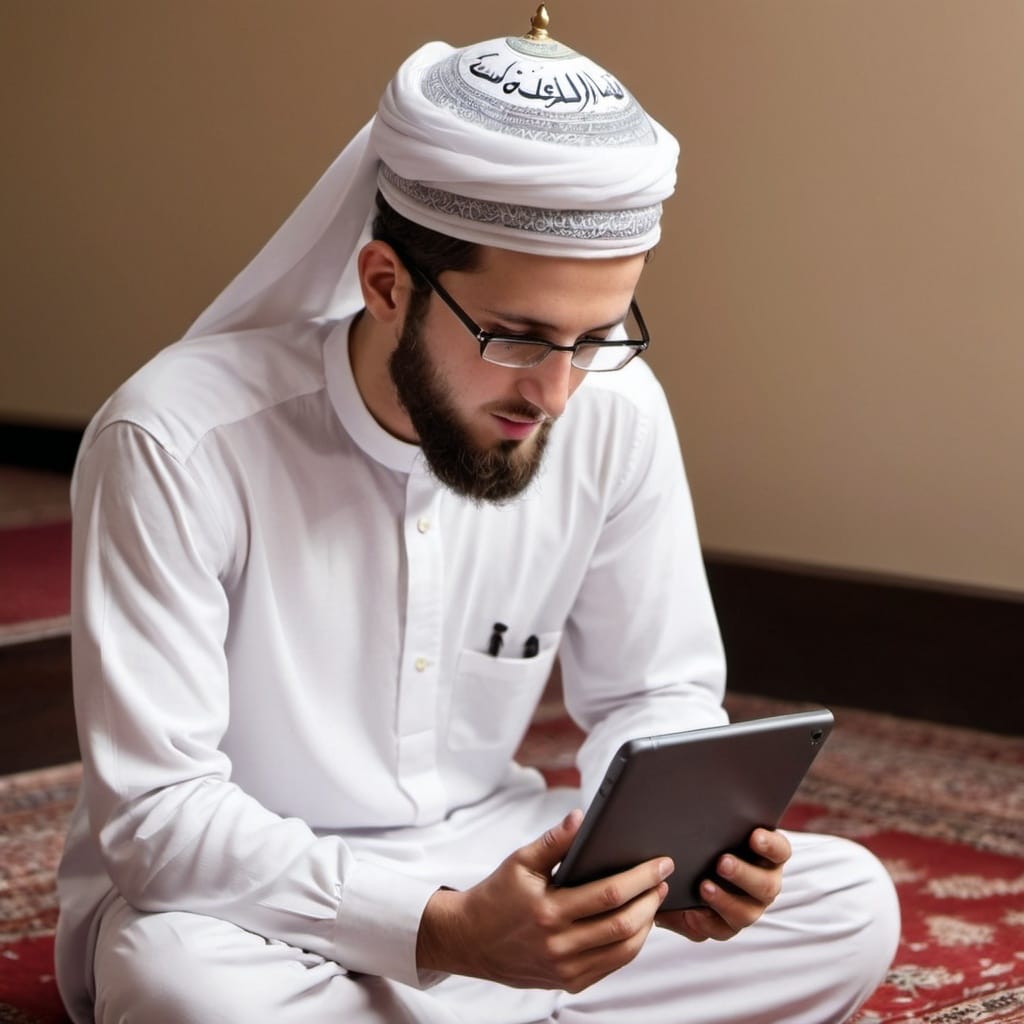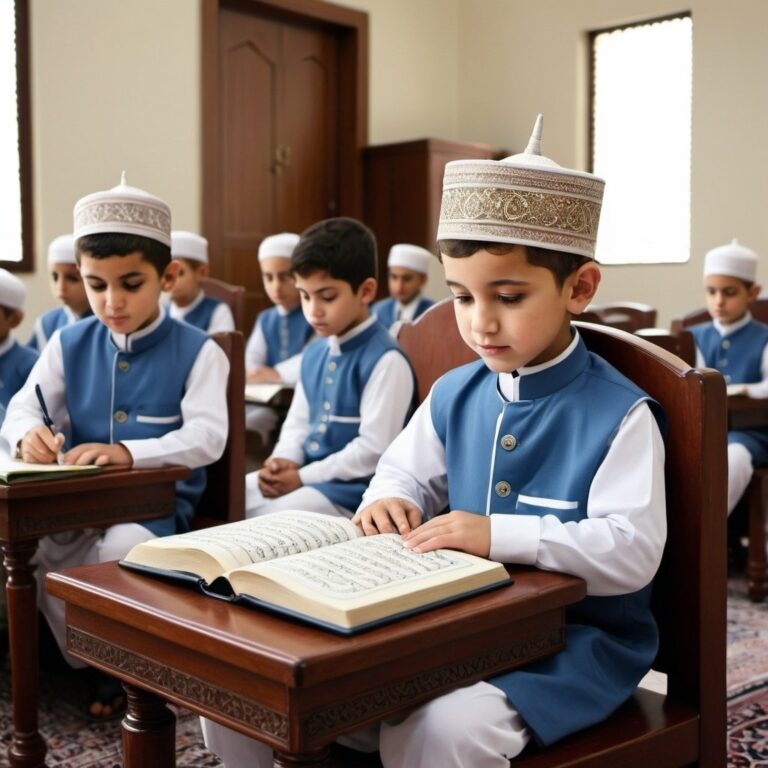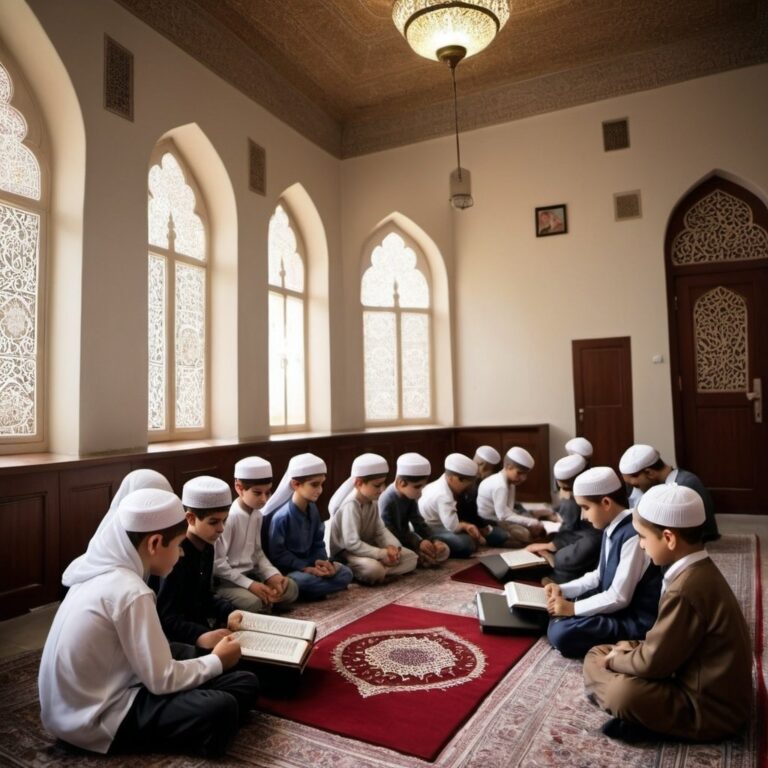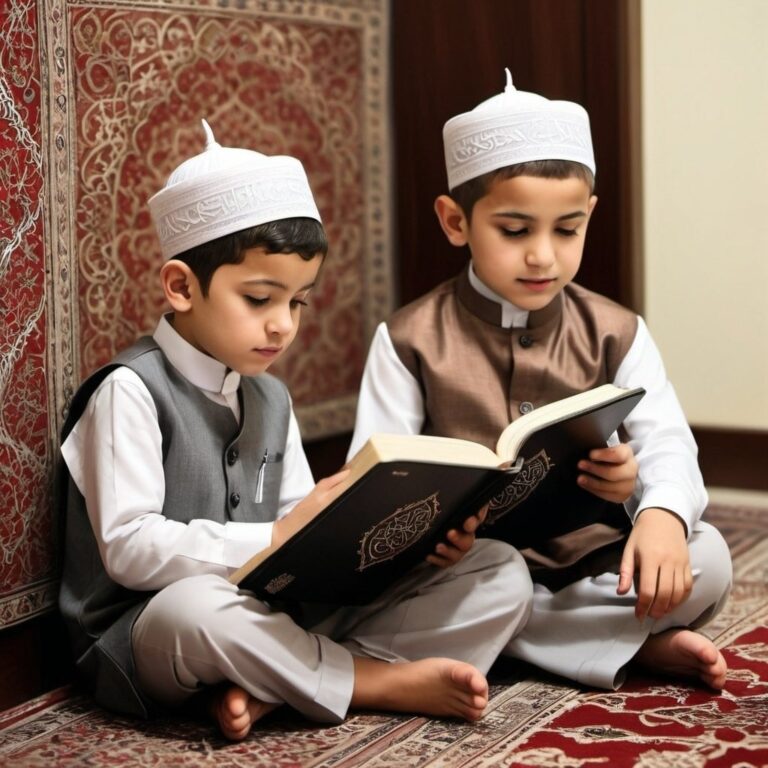The Embodiment of Purity and Cleanliness in Quran and Hadith
Purity and cleanliness are foundational factors of Islam, woven intricately into the material of day by day existence and worship. The Quran and Hadith offer comprehensive guidance on retaining each physical and religious purity, emphasizing their significance in a Muslim’s lifestyles. This article explores the intensity of these teachings, providing sensible hints and insights for Muslims seeking to embody the principles of purity and cleanliness in their each day lives.
Introduction to Purity and Cleanliness in Quran and Hadith
Purity and cleanliness hold a unique region in Islam, not just as physical practices however as religious ones too. The Quran and Hadith repeatedly strain the significance of being natural and easy in every element of life. This piece will discover the multifaceted idea of purity in Islam, drawing from the wealthy teachings of the Quran and Hadith.

The Concept of Physical and Spiritual Purity in Islam
Physical Purity
Physical purity includes cleanliness of the body, clothes, and environment. The Quran and Hadith offer distinct commands on how Muslims can keep this purity. Regular practices like ablution (wudu) earlier than prayers, bathing, and wearing smooth clothes are vital.
Spiritual Purity
Spiritual purity refers back to the cleanliness of the heart and soul. It entails maintaining sincerity in worship, warding off sinful conduct, and staying straightforward. The Quran emphasizes that best a natural coronary heart can truly connect with Allah.
The Interconnection Between Physical and Spiritual Purity
Physical and non secular purity are deeply interconnected in Islam. Regular physical cleaning practices prepare a Muslim for non secular sports like Salat (prayer). This holistic approach ensures that a Muslim isn’t always simply easy on the outside but also pure inside.
Practices of Purity in Daily Life: Ablution and Bathing
Ablution (Wudu)
Ablution is a ritual cleaning done before prayers and other acts of worship. It entails washing the palms, mouth, nostrils, face, palms, head, and toes. The Quran states, “O you who consider! When you would like to offer the Salah, wash your faces and your arms as much as the elbows, rub your heads, and wash your ft up to the ankles” (Quran 5:6).
Bathing (Ghusl)
Ghusl is a full-frame ritual purification. It is needed in particular instances along with after marital family members, menstruation, or childbirth. Regular bathing is endorsed to maintain usual cleanliness.
Daily Purity Practices
In addition to wudu and ghusl, Islam encourages Muslims to preserve cleanliness of their every day lives. Brushing enamel, reducing nails, and wearing clean clothes are simple but extensive acts of purity.
The Significance of Purity in Worship: Salat and Hajj
Purity in Salat (Prayer)
Purity is a prerequisite for acting Salat, one of the Five Pillars of Islam. Without proper ablution, the prayer is considered invalid. This underscores the importance of cleanliness in Islamic worship.
Purity in Hajj (Pilgrimage)
During Hajj, pilgrims have to be in a state of Ihram, which includes wearing easy, easy clothing and keeping bodily purity. This kingdom of purity symbolizes religious renewal and equality before Allah.
Spiritual Significance
Maintaining purity in worship isn’t just about bodily cleanliness; it symbolizes spiritual readiness and devotion to Allah. It displays a Muslim’s dedication to upholding the sanctity in their faith.
Purity of Wealth and Ethics in Business: Zakat and Trade
Zakat (Charity)
Zakat, any other pillar of Islam, includes giving a portion of one’s wealth to the ones in want. This act purifies the giver’s heart from greed and selfishness. The Quran states, “Take from their wealth a charity by means of which you purify them and purpose them boom” (Quran nine:103).
Ethics in Trade
Islamic teachings emphasize honesty and equity in alternate. Cheating and deceit are strictly prohibited. The Prophet Muhammad (PBUH) said, “The trustworthy and honest service provider is with the Prophets, the sincere, and the martyrs” (Tirmidhi).
Purity of Wealth
Purity in wealth extends past giving Zakat. It involves earning via halal (lawful) way and heading off haram (prohibited) sports. This guarantees that one’s profits and fees remain easy and blessed.
The Importance of Purity inside the Heart and Mind
Inner Cleanliness
Purity of the heart is essential in Islam. It includes putting off terrible developments along with envy, hatred, and conceitedness. The Quran highlights the fulfillment of folks that purify their souls, “He has succeeded who purifies it” (Quran ninety one:nine).
Purity of Intentions
Intentions play a critical function in Islam. Every action is judged via its goal. Therefore, maintaining natural intentions is essential for spiritual boom and acceptance of deeds by way of Allah.
Mindfulness and Reflection
Regular self-reflection and mindfulness help hold purity of the heart and thoughts. This entails being aware of one’s mind and actions, and constantly striving for self-development.
Purity and Cleanliness in the Life of Prophet Muhammad (PBUH)
Personal Hygiene
The Prophet Muhammad (PBUH) changed into recognised for his impeccable non-public hygiene. He emphasized regular brushing of teeth, grooming, and carrying clean garments. His practices set a high standard for Muslims to follow.
Environmental Cleanliness
The Prophet (PBUH) additionally stressed the significance of keeping the environment clean. He stated, “Removing harmful matters from the street is an act of charity” (Muslim). This coaching encourages Muslims to make contributions to a cleaner environment.
Role Model
The existence of the Prophet (PBUH) serves as a perfect example of retaining purity and cleanliness. His moves and teachings hold to inspire Muslims to uphold those values of their daily lives.
Practical Tips for Maintaining Purity in Daily Life
Daily Hygiene Routine
Establishing a daily hygiene recurring is essential. This includes normal washing, grooming, and carrying smooth garments. Simple practices like brushing tooth and slicing nails move a long manner in retaining purity.
Clean Living Space
Keeping one’s living area easy is equally crucial. Regularly cleaning the residence, washing bed linens, and ensuring a tidy environment make a contribution to usual purity.
Mindful Eating
Consuming halal meals and avoiding harmful materials like alcohol and pills make sure purity of the frame. Being aware of 1’s diet and choosing clean, nutritious meals help bodily and non secular well-being.
FAQs approximately Purity and Cleanliness in Islam
- What is the significance of purity in Islam?
Purity is vital in Islam as it prepares a Muslim for worship and displays spiritual readiness. It encompasses physical cleanliness and spiritual purity.
- How frequently have to one carry out wudu (ablution)?
Wudu have to be achieved earlier than each prayer. If it breaks due to sure actions like drowsing or the usage of the restroom, it should be renewed.
- What is ghusl, and whilst is it required?
Ghusl is a full-body ritual purification required in conditions like after marital relations, menstruation, or childbirth.
- Can wudu be achieved with makeup on?
Wudu calls for washing the pores and skin. Makeup that stops water from achieving the pores and skin ought to be eliminated.
- What are the consequences of no longer preserving purity in prayer?
Without right ablution, the prayer is taken into consideration invalid. Purity is a prerequisite for Salat.
- How does Zakat purify wealth?
Zakat purifies wealth with the aid of putting off greed and selfishness. It includes giving a component of 1’s wealth to the ones in want.
- What is the significance of Ihram for the duration of Hajj?
Ihram includes wearing easy, smooth clothing and preserving physical purity. It symbolizes religious renewal and equality earlier than Allah.
- How can one hold purity of the coronary heart?
Purity of the coronary heart may be maintained by using disposing of bad trends, retaining pure intentions, and training mindfulness and self-mirrored image.
- What are a few day by day practices to keep cleanliness?
Daily practices include normal washing, grooming, carrying clean garments, and retaining one’s living area tidy.
- How did Prophet Muhammad (PBUH) emphasize cleanliness in his life?
The Prophet (PBUH) emphasized non-public hygiene, environmental cleanliness, and set a high general for Muslims to observe.
- What ingredients should be prevented to keep purity?
Avoiding haram substances like alcohol and capsules, and eating halal meals ensures purity of the frame.
- Can someone pray without ghusl if they’re unable to carry out it?
If a person is unable to carry out ghusl because of illness or lack of water, they can carry out tayammum (dry ablution) alternatively.
- How does ablution (wudu) contribute to non secular purity?
Ablution prepares a Muslim for worship and displays religious readiness. It includes bodily cleansing that symbolizes religious purity.
- What is the role of intentions in retaining purity?
Intentions play a essential role in Islam. Every action is judged with the aid of its purpose, so retaining pure intentions is vital for spiritual boom.
- Why is purity crucial in business ethics?
Purity in business ethics guarantees honesty and equity in change. Cheating and deceit are strictly prohibited in Islamic teachings.
- Can one carry out wudu with nail polish on?
Nail polish prevents water from accomplishing the nails. It need to be removed earlier than acting wudu.
- What is the significance of environmental cleanliness in Islam?
Islam encourages keeping the surroundings smooth. The Prophet (PBUH) taught that eliminating dangerous things from the street is an act of charity.
- How can Muslims make a contribution to a cleaner environment?
Muslims can make a contribution to a purifier environment by using following the teachings of the Prophet (PBUH), together with getting rid of harmful things from the street and preserving environment easy.
- What is the importance of cleanliness in apparel?
Wearing smooth garments is critical for retaining usual purity. It displays a Muslim’s commitment to upholding the sanctity of their religion.
- How can on-line Quran studying help in preserving purity?
Online Quran gaining knowledge of offers get admission to to informed teachers who can guide college students in expertise the significance of purity in Islam. It gives a handy way to deepen one’s understanding and exercise of Islamic teachings.
Conclusion: The Ongoing Commitment to Purity inside the Muslim Community
Maintaining purity and cleanliness is an ongoing commitment for Muslims. It includes everyday bodily cleansing practices, religious mirrored image, and moral behavior. The teachings of the Quran and Hadith provide comprehensive steering on how to achieve and keep purity in all components of life.
For the ones looking for to deepen their understanding and exercise of these teachings, online Quran gaining knowledge of offers a precious aid. Finding the right teacher could make a big distinction in a single’s non secular adventure and adherence to Islamic principles.
Purity and cleanliness are not just physical practices; they may be a reflection of 1’s non secular state and devotion to Allah. By embodying those standards, Muslims can lead a existence of integrity, honor, and spiritual achievement.








